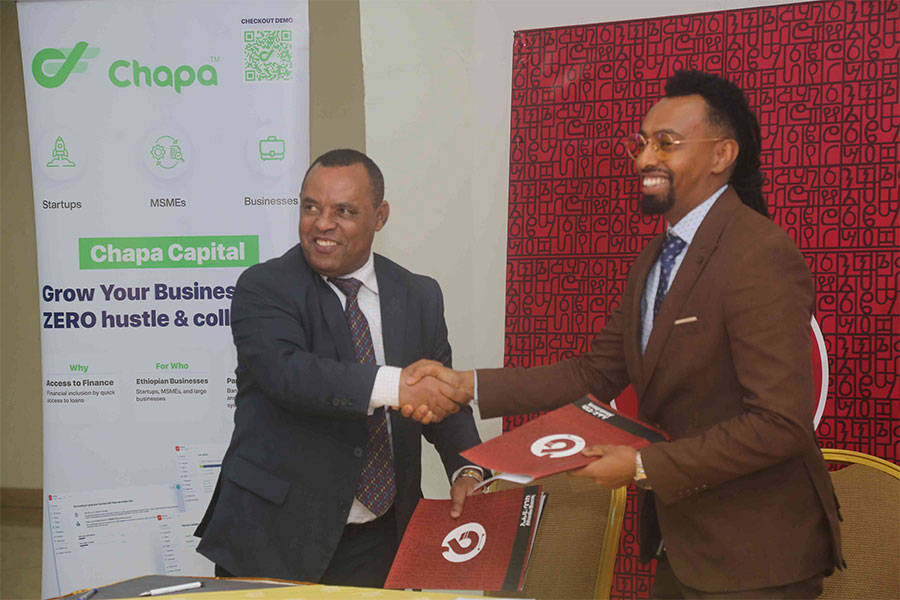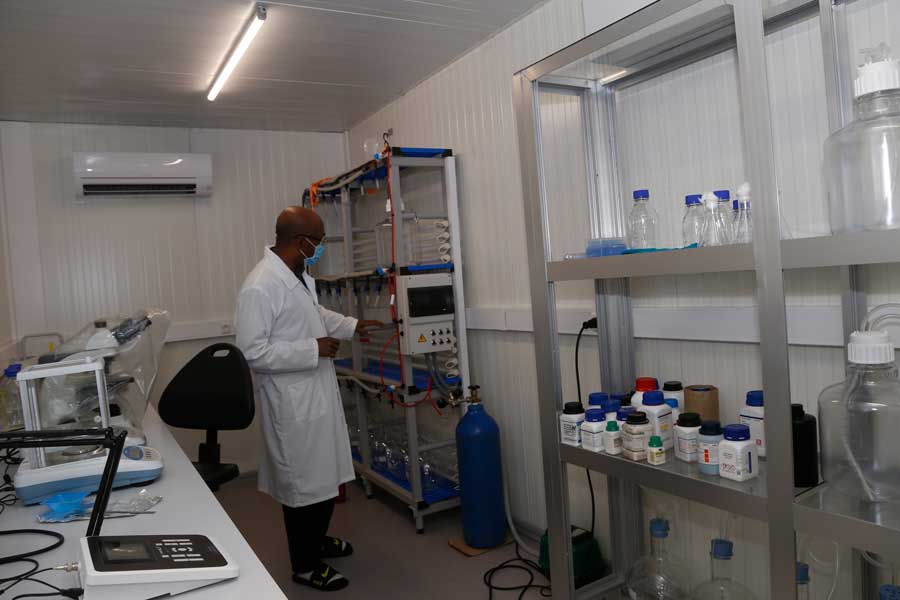
A digital agricultural extension services advisory roadmap will be developed by an American consulting firm the federal government hired.
Boston Consulting Group, a global consulting firm, will be responsible for designing a roadmap that outlines the ecosystem, infrastructure, and digital agricultural advisory services applications.
“The roadmap is expected to be finalised the next July," Mandefro Nigussie (PhD), director-general of the Agricultural Transformation Institute, told Fortune.
A global firm was selected to learn from an international experience and prepare the roadmap based on the lessons, according to Yenenesh Egu, director of agricultural extension at the Ministry of Agriculture. A week ago, a brainstorming session was held in Adama town, 100Km southeast of Addis Abeba.
Boston Consulting has outsourced some of its tasks to Precise Consult, a local firm established in 2007 specialising in finance, business intelligence, and private sector advisory services. Precise Consult's managers confirmed their firm is involved in preparing the roadmap but declined to provide further details.
The digital extension service advisory roadmap is part of a programme introduced three years ago. In 2019, in partnership with the Bill & Melinda Gates Foundation, the government launched the "Digital Agricultural Advisory Services" programme, with a 17.5 million dollars budget spread over five years. It targets to boost agricultural productivity, delivering location- and time-specific advice to farmers across multiple channels, including video, SMS, and radio.
Close to 35,000 tablets have been distributed to regional agriculture bureaus since last September. Each of the 16,000 rural kebeles in the country will receive two tablets.
“The tablets will support the digitalisation of video-based agricultural extension initiatives, delivering information across the country,” said Girmamie Girum, head of the extension unit at the Ministry.
A community-centric video approach to agriculture extension service provision is another ICT-based method the government is piloting. The initiative plans to deliver and screen videos demonstrating agricultural technologies and practices featuring farmers and are tailored to local needs, according to Girmamie. Extention workers facilitate video delivery and screening.
Tadios Leta is one of the extension workers in delivering information to farmers, showing videos that demonstrate agricultural technologies and practices. Based in Merhabete Wereda in the Amhara Regional State, his most recent task was explaining the preparation of organic fertiliser to 800 smallholders in the area. The skyrocketing prices for fertilisers have pushed officials to train farmers on the preparation and use of organic fertilisers.
A quintal of chemical fertilisers such as NPS goes for 4,800 Br, nearly triple the prices from last year.
In the past, the extension services depended on door-to-door visits and development group meetings, community meetings, and field demonstrations. Yenenesh says the COVID-19 pandemic has pushed the digital extension service advisory programme to take root.
The government has been experimenting with ICT-based agriculture extension services since 2018 when it introduced information hotlines, interactive voice response and short message systems. The initiative allows farmers to call free of charge and receive information about major crops and the prices and availability of agricultural inputs. The "8028" farmers' hotline began delivering information and advisory services on 21 crops. It has since expanded to include livestock-related information.
The service hosted over four million callers last year, while over 480,000 new users have been registered into the system. The platform can also help to conduct surveys on crop diseases and pests with the participation of frontline extension workers, according to Yenenesh.
The agriculture extension service programme played a vital role in promoting the adoption of modern agricultural inputs and farm technologies to 18 million smallholder farmers. Since its inception in 1995, extension workers (also known as development agents) have grown from 2,500 to 72,000. The federal government has expanded technical and vocational education colleges, where extension workers are trained, since 2002. Around 80,000 extension workers have received training, helping Ethiopia have Africa's largest extension service workers.
In 2010, the extension worker to farmer ratio stood at 476. This roughly equates to 21 development agents for every 10,000 farmers. The ratio grew to 43 agents, covering 70pc of smallholder farmers.
Alemneh Debebe, 40, a father of five, farms wheat and teff on a half-hectare plot in Guzamn Wereda in the East Gojjam Zone of the Amhara Regional State. He had used modern agricultural inputs such as fertilisers without expert advice. His productivity was limited to a maximum of four quintals. This changed after extension workers arrived in his village in 2016.
"I learned the proper use of agricultural inputs,” Alemneh told Fortune.
His productivity has since increased to 10qtl.
The latest survey conducted by the Ethiopian Statistics Service reveals that 12.5 million farmers benefited from agricultural advisory services last Mehir season. The extension package embraced about 6.1 million maize growers, about 3.8 million teff growers, and three million wheat growers. An agricultural expert who requested anonymity confirms that the extension system has helped farmers throughout the country in assisting them in using modern agricultural inputs.
The amount of fertiliser used in smallholder farms has increased exponentially since the 1960s when annual usage was at 3,500tn. It grew to 140,000tn in the 1990s and 1.9 million tonnes last year. Farmers used 1.2 million quintals of improved seeds last year, while the number of farmers who applied pesticides stood at 6.8 million.
The expert, however, cautions the workloads placed on extension workers have become daunting.
“Without proper compensation, the tasks and goals imposed by the federal authorities will discourage extension workers from addressing the needs of farmers effectively,” said the expert.
Tadios could not agree more.
“Although the programme has been decentralised to regional governments and woreda administrations, more and more tasks are shouldered by extension workers," he said.
PUBLISHED ON
Apr 09,2022 [ VOL
23 , NO
1145]

Fortune News | Jun 20,2020

Fortune News | May 28,2022

Viewpoints | Jun 22,2024

Fortune News | Nov 29,2020

Radar | Jun 03,2023

Radar | May 20,2023

Commentaries | Apr 20,2019

Fortune News | Aug 05,2023

Commentaries | Mar 11,2023

Fortune News | Aug 01,2020

Dec 22 , 2024 . By TIZITA SHEWAFERAW
Charged with transforming colossal state-owned enterprises into modern and competitiv...

Aug 18 , 2024 . By AKSAH ITALO
Although predictable Yonas Zerihun's job in the ride-hailing service is not immune to...

Jul 28 , 2024 . By TIZITA SHEWAFERAW
Unhabitual, perhaps too many, Samuel Gebreyohannes, 38, used to occasionally enjoy a couple of beers at breakfast. However, he recently swit...

Jul 13 , 2024 . By AKSAH ITALO
Investors who rely on tractors, trucks, and field vehicles for commuting, transporting commodities, and f...

Jul 12 , 2025
Political leaders and their policy advisors often promise great leaps forward, yet th...

Jul 5 , 2025
Six years ago, Ethiopia was the darling of international liberal commentators. A year...

Jun 28 , 2025
Meseret Damtie, the assertive auditor general, has never been shy about naming names...

Jun 21 , 2025
A well-worn adage says, “Budget is not destiny, but it is direction.” Examining t...